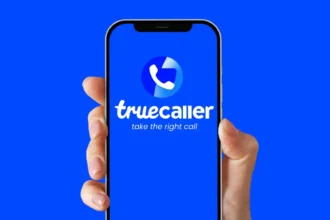The Information Regulator has confirmed that it has not received any complaints regarding Truecaller breaching the Protection of Personal Information Act (Popia). This update comes after some legal experts raised concerns about Truecaller’s data privacy practices, particularly in relation to how the app previously encouraged users to upload their contact lists.
Truecaller, a popular spam call identification service, had users upload their contacts in exchange for certain features. However, questions arose regarding whether this practice violated South Africa’s data protection laws. Werksmans Attorneys regulatory practice head, Ahmore Burger-Smidt, identified two key potential Popia breaches.
Firstly, Popia restricts the transfer of personal information outside of South Africa unless strict corporate agreements are in place. Secondly, there was concern that individuals who had not subscribed to Truecaller may have unknowingly had their information uploaded.
Burger-Smidt emphasized that although Truecaller attempted to pass the responsibility to users via its terms and conditions, the company remained in control of how this personal data was collected and used. She added that Truecaller’s terms, while trying to balance privacy and transparency, could still leave room for concerns.
Truecaller Responds
In response to these concerns, Truecaller has reiterated its commitment to respecting users’ privacy. A spokesperson for the app explained that the service seeks to balance people’s right to know who is calling them with their right to privacy.
Truecaller also highlighted that users can edit, rectify, download, and delete their data within the app, and even deactivate their accounts if they choose to. Truecaller’s global head of corporate communications, Hitesh Bhagat, stated that Truecaller does not require users to upload their contact lists and clarified that the app only requests access to a user’s contacts to screen calls. Bhagat explained that Truecaller intercepts unknown callers while letting calls from known contacts go through, ensuring that users can control who reaches them.
Despite these reassurances, some still believe Truecaller could be doing more to protect personal information. Ahmore Burger-Smidt suggested that Truecaller should notify individuals when their information is added to its database. This could help non-subscribers become aware that their data is being used and provide them with the option to delist themselves.
Enhanced Search Feature Raises Questions
Another point of contention has been Truecaller’s Enhanced Search feature. While this feature has been removed from versions of the app available on Google Play and the Apple App Store, it is still available for Android users who download the app from Truecaller’s website. To access this feature, users are asked to upload their address books. This practice has raised privacy concerns, as it appears to contradict Truecaller’s statements about how the app uses contact data.
Although Truecaller remains firm in its belief that it complies with local laws, Burger-Smidt highlighted that regulatory oversight remains necessary to ensure users’ data is not being mishandled. She encouraged South Africans to file complaints with the Information Regulator if they believe Truecaller is violating Popia.
The Information Regulator, through spokesperson Nomzamo Zondi, welcomed such complaints and affirmed its commitment to investigating any concerns raised by the public.
Looking Forward: A Privacy-First Approach?
While Truecaller continues to navigate varying legal landscapes across different jurisdictions, the app has taken steps to show it prioritizes users’ privacy. However, the balance between enabling useful services and protecting personal information remains a crucial point of debate.
As South Africa continues to embrace technology, scrutiny over how personal data is managed will only increase. For Truecaller, and other global services like it, compliance with Popia and other privacy laws is essential. Consumers will likely keep a close eye on how these companies handle their data in the years to come.












